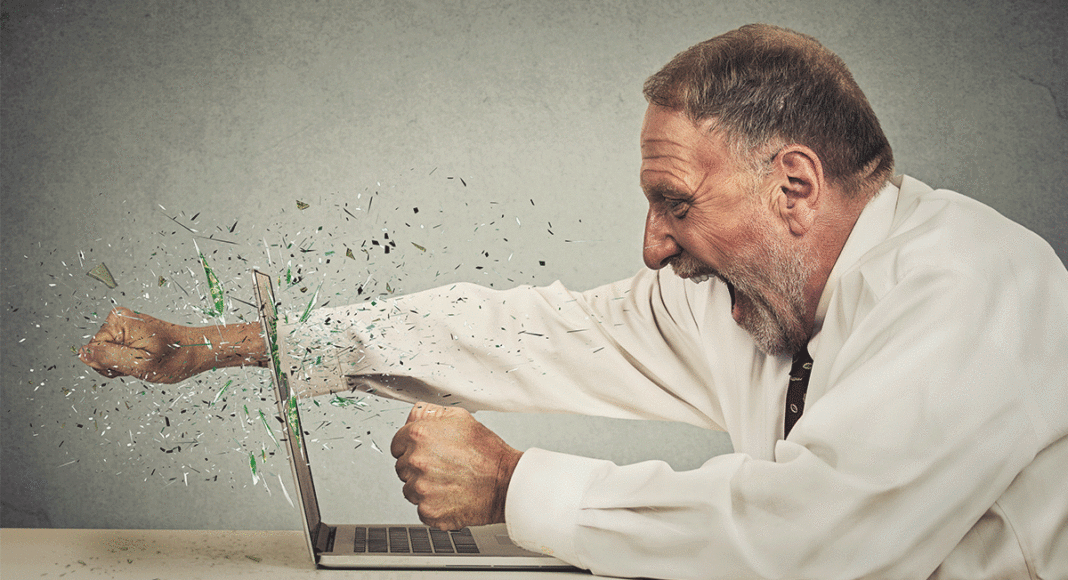We’ve all been there: in between deadlines, late for a meeting, over-fed and underslept, looking for that one email that Diane in corporate sent a couple of weeks ago—which folder is it in again? The inundation of digital information that we receive on a daily basis is virtually impossible for us to fully categorize, says psychologist Steve Whittaker.
“The average person has 6,000 work email messages with half of those read in their inbox, 600 unread and tens of thousands of pictures on their desktop,” says Whittaker, a professor at UCSC. “You’re never, ever going to have the time to organize those things.”
Whittaker’s recent book The Science of Managing Our Digital Stuff, coauthored with Ofer Bergman, analyzes the way we organize our digital information and presents ways that we can attempt to do so in a more efficient, stress-free way.
“People feel really inherently dissatisfied with the way they manage their digital information,” he says.
There are studies showing that people get really stressed by using inefficient methods to process email, says Whittaker—like checking them as soon as they come in, which is counterproductive for other work and adds anxiety because it reminds the reader that there is always more stuff to be done.
And even if checking email or looking for digital files on your desktop might seem like a small part of the work day, the tension it causes can build up.
Headaches, muscle tension, chest pain, fatigue, stomach upset, sleep problems—these are just some of the common effects of stress on the body, experts say, and they can develop into depression, social withdrawal and more.
Conjure up the image files you have on your desktop or cloud server: are they organized by date? By person? By event name? How did you come up with that label in the first place?
That’s the problem, says Whittaker; our methods make sense to us, but might not be the most logical method to someone else. That’s why tech companies haven’t been able to successfully provide an organizing mechanism usable on a large scale, he says.
“You’re in your mother or sister’s kitchen, and you say ‘Where’s the ladle?’ They point somewhere completely arbitrary, and that’s not where you would’ve put it, and they give you a reason of why it’s there,” says Whittaker.
He began his research 20 years ago when he was working at Lotus 123, the first spreadsheet program designer.
“I noticed people were building up these enormous repositories of email that they were keeping because they thought they might be useful, but presented the problem for them in terms of organization. Then they were also experiencing a lot of stress because they had overly full inboxes,” says Whittaker. “The situation today is no different.”
Filing emails in designated folders doesn’t actually create a more efficient system for finding emails either, Whittaker’s research shows. Relegating messages to different folders has more to do with emotional comfort (who likes the site of a cluttered inbox?!) rather than expediency when going through the gruelling task of excavating an old message.
“We did some brain imaging studies that showed when people are navigating [folders] on their machines, they use an evolutionarily older, simpler part of their brain—which can be found in pigeons, monkeys and rats—that we use for locating and finding,” says Whittaker.
It feels comfortable to go through the folders we’ve created because it’s like we left ourselves breadcrumbs straight back to that email or folder. Except we often just end up getting lost in the digital forest of files.
Creating a search for the search bar requires complex verbal processing—”How was I thinking or feeling about this email three weeks ago?”—so in the moment it feels way more anxiety-inducing. That’s why it’s difficult to get people to change their behavior, says Whittaker, because you’re asking them to choose a temporarily more stressful situation over the comfortable way of doing things. In the long-term, though, he says, it just works.
For the day-to-day, readers of The Science of Managing Our Digital Stuff can learn tactics to get more organized, says Whittaker—although it’s not a self-help book, he says.
“This isn’t rocket science, but if you introduce simple ideas based on what’s important to you, we can help you to decide what’s important and see things that are more significant to you.”
Whittaker says he’s incorporated some of the methods in the book, like using the search bar to find emails, and it really does help.
Even with the most rational system, though, mistakes are bound to happen, says Whittaker,.
“I think it’s impossible to have a foolproof system, which is why I’ve been working on this for 20 years—it’s trying to build techniques that work with the way individuals think and then you are likely to have fewer instances of lost things. But I think there’s something intrinsically problematic with our relationship to information,” says Whittaker. “I don’t know if it’s a great recommendation to say you should be more Zen about this, I’m a tech person so that’s a weird recommendation to make, but you are going to make mistakes.”














